Wikipedia:Wikipedia Signpost/Single/2011-03-21
NPG copyright irony; Citizendium's finances; Credo accounts donated; brief news
"Copyright irony": UK's National Portrait Gallery appears to have copied from Wikipedia without permission
On WikiEN-l, Scott MacDonald reported that the National Portrait Gallery website has copied text from the Wikipedia article for the Baroque portrait artist John Michael Wright for its own entry (WebCite) on the painter (another entry was suspected to have similar problems). Following investigations on the talk page, it turns out that MacDonald's allegations are well-founded. The Wikipedia article—which happens to be today's Featured Article on the main page—was edited in 2007/2008 to incrementally reach the current wording, while the National Portrait Gallery website added the material much later than that. Such reuse is allowed, but must be accompanied with the appropriate attribution under the terms of Wikipedia's copyleft Creative Commons Attribution-ShareAlike license, whereas the NPG's entry claims "© National Portrait Gallery, London 2011".
The National Portrait Gallery have previously raised the threat of a lawsuit in English courts against Derrick Coetzee, a Wikipedia and Commons administrator, who had made a bot that copied photographs of out-of-copyright paintings from the gallery website and uploaded them to Commons (see Signpost coverage from 2009-07-13). While the case of Bridgeman Art Library v. Corel Corp. makes such copying legal under U.S. law, it is unclear whether the photographs the NPG had made of the artworks had copyright in the United Kingdom.
Citizendium releases financial statement
The Management Council of Citizendium, an English wiki encyclopedia project like Wikipedia but with "gentle expert guidance", started by Wikipedia co-founder Larry Sanger in 2006, has released a financial statement. After changing hosting providers, the monthly cost of hosting the site has dropped from around $700 a month to $319.90. The site's current funds stand at $2,092.17 and thus the hosting of the site is paid for until September.
After the financial problems the Management Council inherited were revealed in November, there was a successful donation drive which raised $2,776.09 that month, and a further $934.33 in December. The Council have stated they are hoping to get a number of regular donors (between 20 and 30) to give between $11.25 and $17 a month to host the site. Three contributors have agreed to this, although as the active user base is around 70 (down from a high of 200), finding enough to support the site may prove difficult unless a corporate or non-profit benefactor steps in.
It was mooted after the financial revelations in November that the Wikimedia Foundation could support Citizendium, although Sanger quickly rejected the suggestion. Citizendium also has yet to work out how to incorporate itself as a new legal entity now that it has broken links with the Tides Foundation. The lack of incorporated non-profit status means contributions are not tax-deductible, which may reduce the number of larger donations.
400 Credo accounts for Wikipedians
This week, Wikipedians will be able to apply for an account on Credo Reference (formerly Xrefer), a subscription-based reference site that contains full text articles from a variety of different publishers and reference works (listed here). To give some examples, a search on a medical topic might bring up results from the Royal Society of Medicine Health Encyclopedia, the Cambridge Dictionary of Scientists, Black's Medical Dictionary and the Hutchinson Unabridged Encyclopedia, while a search for a German philosopher brought up results from the Chambers Biographical Dictionary, Who's Who in Christianity, and the Encyclopedia of German Literature. Interestingly, topic pages on Credo reuse images from Wikimedia Commons, and Credo has announced that their topic pages are "The Librarian’s Answer to Wikipedia".
Wikipedians who do not already have access to Credo or a similar database through library or university subscriptions will be able to apply for an account donated by Credo starting at 22:00 UTC on Wednesday at Wikipedia:Credo accounts (WP:CREDO). The criteria include having a working e-mail address setup, to have 3,000 non-minor edits to article space and to have been involved in Featured Article or Good Article writing or reviewing, or being active in a content-focused WikiProject.
Credo Reference previously donated 100 user accounts in March 2010.
In brief
- Wikimedia conference: The Wikimedia Conference 2011 is going to be held this week, joining representatives of Wikimedia chapters and the Foundation in Berlin (schedule). It also includes the first physical meeting of the Wikimedia Board of Trustees since October (proposed agenda).
- Wikipedian in Residence at US National Archives: The US National Archives and Records Administration (which recently hosted Wikipedians for a one-day conference in Washington D.C. celebrating Wikipedia's tenth anniversary, see Signpost coverage) have announced that they are seeking a Wikipedian in Residence, a student internship this summer (Application + details, PDF)
- Pending Changes RfC: Following two earlier phases, a third phase of preparations for a Request for Comment about the future of the Pending Changes feature has begun.
- Foundation looking for "Community liaison" and other staff: The Wikimedia Foundation posted several new Job openings last week. These include the new position of "Community Liaison", a 3–12 month job which will be filled by an "experienced Wikimedian with established contacts within the community", who will be tasked with being "a friendly face who is never 'too busy' to talk with contributors who have genuine questions or issues for the Foundation. The liaison steps into difficult discussions to explain details and context to staff and contributors to promote mutual understanding and healthy communication." Another new position, also aimed at experienced Wikimedians, is a year-round Fundraiser Production Coordinator.
- "Wiki-love" blog started: Community-elected Wikimedia Trustee Samuel Klein (User:Sj) last week started a blog at WikiLove.in which intends "to chronicle the joyful aspects of Wiki nature".
- Board election suffrage: Discussions on who should be entitled to vote in this year's elections for the three community-selected seats of the Wikimedia Board of Trustees have started on meta and Foundation-l.
- IRC office hours: The log of the March 18 IRC office hour with Sue Gardner has been published. Much of the conversation concerned the recently published results of the "Editor Trends Study", and topics like newbie-friendliness and usability.
- WMF report for February: The Wikimedia Foundation's report for February has been published. Apart from items previously reported in the Signpost, it contains a summary of the "Data Summit", and the first edition of "diversity stats" compiled by the Human Resources Department about the composition of the Foundation's staff: Of its 63 employees, 42.9% were female, 31.8% were "ethnic minorities", 38.1% were foreign nationals and 42.9% were "Wikimedians".
- Gender gap discussions: Debates on the Wikimedia Foundation's "Gendergap" mailing list, started around the beginning of February to discuss the problem of low female participation on Wikipedia, heated up recently following a proposal to exclude men from the list, which was rejected. Also last week, Sue Gardner answered several general questions by a list participant about possible sexism and harassment on Wikipedia, and the Foundation's efforts to reduce the gender gap. She rejected the assumption that female contributors were "likely to be subject to chronic sexist remarks", saying she believed "that Wikimedians are significantly less overtly, explicitly sexist than non-Wikimedians. Many, many online cultures are blatantly misogynist: Wikimedia IMO is not. ... That doesn't mean we don't behave in ways that deter women's participation: I think it's obvious that we do". She also stated that an upcoming editor survey will include "a half-dozen questions about gender and sexism".

Output of the "The Book" tool - Ideas for Wikipedia: A "Wiki Academy" held at Bristol University on March 19 asked "How can we make Wikipedia better?", collecting various ideas.
- Aesthetic excerpts: German Wikipedia Stefan Kühn has written a Toolserver tool that "shows your Wikipedia like a printed lexicon book", in a two-column layout with articles reduced to their first paragraph - example for the English Wikipedia (review by Sj). Another new tool by Magnus Manske somewhat similarly reduces a Wikipedia article to a lede, a thumbnail image from the article and a link to the full article (review by Sj).
Reader comments
Ward Cunningham's rich child; Indian donations; data mining Wikipedia; brief news
Ward Cunningham: Wikipedia is like "my child grown up and become richer than me"

Ward Cunningham, the inventor of the wiki, was interviewed by "The Pragmatic Bookshelf", a programmers' podcast. He recalled how he arrived at the idea of wikis after "playing around with HyperCard" (an early hypertext software), and emphasized the importance of (the equivalent of) redlinks and the recent changes page, and how he got rid of the illusion of a "developer review process that couldn't be abused", arriving at a wiki's "anyone can edit" philosophy. Another important idea taken from HyperCard was "[7:02] that anybody could write anywhere, you did not have to write in chronological order. (... With) so much of collaboration software you spend most of your time quoting whoever you wanted to respond to ... I wanted it to be able to evolve to be something that was worth reading. The Wikipedians actually turned that up a notch by having a talk page or a discussion page behind every page, so you don't actually have to see the discussion and it makes a much more finished product. .. I'd say everything I really cared about has been carried forward in Wikipedia and everything that was just an expedient choice I made, that got in the way of writing the encyclopedia, they changed. I met those guys maybe three or four years into their project, which they started 5 years after mine, and they were very concerned: 'Ward, is what we built really a wiki?'" Interviewer: "They wanted your blesssing!" Cunningham: "Oh yes, approval... they knew they changed a lot, and I said: Oh yeah, absolutely. Because it has the feel. It's all about the feel, it's how you write. And of course, they have been so wildly successful, in a global sense, that it's (like) my child grown up and become richer than me."
"Fleeting" fame from listing oneself on Wikipedia
Mary Bufe wrote on the Webster and Kirkwood Times Online that she has always encouraged her 17 year old son Sam to "make his mark on the world". However, it seems that his way of making his mark on the world doesn't agree with Wikipedia's notability guidelines for people. One look at the revision history of his home town will tell you that he is keen to have his name recognised on the list of notable residents of Webster Groves, Missouri. Sam's claim to fame is being the founder of a wiffle ball club and the co-founder of a wiggle ball league. The Wikipedia sports notability guidelines state that "A person is presumed to be notable if he or she has been the subject of multiple published non-trivial secondary sources which are reliable, intellectually independent, and independent of the subject". Until there are sources besides those written by his mother, it is unlikely that he will be qualified to be on that list.[1]
India Joins Top Donors Club
The Economic Times and The Hindustan Times report that India has become the sixth largest donor to the Wikimedia Foundation in 2010–2011. $193,657 was given to the Wikimedia Foundation by just under 11,000 Indians. Indians donated just under 2% of what the US donated, and made up just over 1% of global donations to the Wikimedia Foundation. The 5 countries donating more than India were the US, Canada, Japan, Spain and the UK, with the US giving over $10m.[2] [3] The Hindu reported that donations in India leapt from the 16th position, contributing $52,156 from 2956 donors in 2009–2010. [4] These amounts do not include donations made by the country chapters of Wikimedia, which also help in local fund-raising.
Data Mining Wikipedia
An article titled "The FullWiki Offers Reference Linking And Other Wikipedia Tools" on Lifehacker Australia briefly portrayed TheFullWiki, "a set of Wikipedia search and mining tools", offering features such as a map of places mentioned in an article, a collection of deleted articles, or finding references for a statement by searching Wikipedia for a similar, referenced sentence ("Students, we find sources for your essay, so you don't have to"). The site's founder Luke Metcalfe describes it as "the result of over 5,000 hours of programming work". Earlier, he founded NationMaster, known to Wikipedians as a longtime mirror of Wikipedia content. In an interview a few months ago, he said that "Wikipedia is a fantastic encyclopedia but the reality is most articles don't get read from beginning to end. So on The Full Wiki we show the data by other dimensions; timelines, maps, top charts. It brings the info to life."
Briefly
- Musician uses Wikipedia to prank media: The Daily Mirror reports that musician James Blunt edited his own Wikipedia page[5] to say he "was classically trained as a church organist" in his teens,[6] in order to bolster his claim that he would play organ at the upcoming royal wedding, "and then there were 4,150 articles about it!"
- How to get a link on Wikipedia: Search Engine Watch explained "How Small Businesses Can Get a Link from Wikipedia" by becoming a trusted editor. A few weeks earlier, a smaller SEO blog had explained another trick to achieve that goal, by uploading images sourced to one's own site.
- Wikipedia cited as reference for supermoon, spoofing and cricket: US student news website The SOP used Wikipedia as a reference in its article about the Supermoon phenomenon that occurred on 19 March 2011,[7] and Patch.com used Wikipedia as a source for the definition of spoofing.[8] pamil-visions.net used a table from 2011 Cricket World Cup Group B in their article about the India vs West Indies game.[9]
- Wikipedia coverage of current events recommended: Arms Control Wonk praised Wikipedia's article entitled Timeline of the Fukushima nuclear accidents for being "quite good and easy to read".[10] The Oye! Times also referred to Wikipedia's coverage of the Fukushima I nuclear accidents.[11]
- Bishop's COI edit: Virtue online, a website that calls itself "The Voice for Global Orthodox Anglicanism", reported that US Bishop Katharine Jefferts Schori had her Wikipedia page edited by a staffer.[12]
- Paper encyclopedias obsolete: Hollandsentinel.com asked the question "why do today’s students even need to know where to find the encyclopedia in the library when they can access Wikipedia right in the palm of their hand?".[13]
References
- ^ http://www.websterkirkwoodtimes.com/Articles-i-2011-03-18-174041.114137-Fame-It-Can-Be-Fleeting.html
- ^ http://articles.economictimes.indiatimes.com/2011-03-18/news/29141772_1_wikipedia-wikimedia-foundation-donors
- ^ http://www.hindustantimes.com/India-ranks-number-six-in-donation-to-Wikipedia-Wikimedia/Article1-675576.aspx
- ^ http://www.thehindu.com/todays-paper/tp-national/article1551986.ece
- ^ http://www.mirror.co.uk/news/royal-wedding/2011/03/20/james-blunt-makes-a-play-for-the-royal-wedding-115875-23001918/
- ^ http://en.wiki.x.io/w/index.php?title=James_Blunt&diff=418788488&oldid=418593009
- ^ http://thesop.org/story/20110319/tonights-super-moon-caused-by-japans-earthquake-and-tsunami.html
- ^ http://hellertown.patch.com/articles/lower-saucon-police-warn-of-phone-scam
- ^ http://www.pamil-visions.net/india-vs-west-indies/224636/
- ^ http://lewis.armscontrolwonk.com/archive/3708/fepc-statement-319
- ^ http://www.oyetimes.com/news/asia/10186-radiation-detected-in-japans-milk-and-spinach
- ^ http://www.virtueonline.org/portal/modules/news/article.php?storyid=14122
- ^ http://www.hollandsentinel.com/facebook_news/x2011272291/Today-s-educators-trying-to-keep-balance-of-old-and-new-in-libraries
Reader comments
Medicpedia — WikiProject Medicine
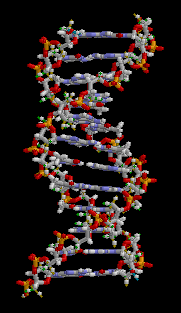

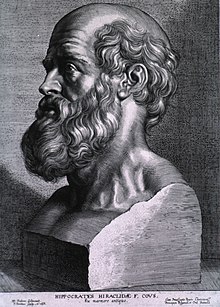
This week, we take a look at WikiProject Medicine. Started in 2004 by Jfdwolff (JFW), it is a very active project, and has 206 members. The project covers 61 Featured articles, 10 Featured lists, 97 Good articles and a Featured portal. It is also home to 15 task forces covering medical subjects from dermatology to toxicology.
The Signpost interviewed three of the project's members. Jfdwolff has been on Wikipedia since 2004, and is a Dutch doctor working in the UK.; active WikiProject Medicine member WhatamIdoing joined Wikipedia in 2006; and Jmh649 (Doc James) is a Canadian doctor who joined Wikipedia in 2007.
How long have you been working on WikiProject Medicine?
- JFW: I arrived in February 2004, and soon identified a number of contributors with a medical background. Seeing that WikiProject Medical Conditions was defunct, I started off a little group (initially on a subpage of my userpage). Kd4ttc, Alteripse and Kpjas were early members. We eventually moved to a new WikiProject called "Clinical Medicine" (because we wanted to focus on the practical aspects). Somewhat later, other editors arrived. For a while, WP:MED existed as a parent of "Clinical Medicine", and the two merged completely only a few years ago. Not a lot of the original bunch are still around, but we are frequently joined by enthusiastic new members. I only wish that more doctors are aware of the fact that patients often turn to Wikipedia for health information (doi:10.1197/jamia.M3059), and that we have a bit of a duty to make sure this content is of high quality! Members of the WikiProject have recently published an article in the Journal of Medical Internet Research (doi:10.2196/jmir.1589) calling on medical professionals to contribute to Wikipedia.
- WhatamIdoing: I stumbled across WikiProject Medicine a couple of months after joining Wikipedia. Like most editors, I lurked for a while, silently helping out here and there. Three and a half years later, I'm now one of the most vocal participants on the project page.
- Doc James: I made my first edits to the article on obesity approximately three years ago and continued working nearly exclusively on it for the subsequent few months. After more than a thousand edits I had brought it to WP:GA status. It was not until this point that I began looking at the medical content more broadly and participating in many other aspects of the WikiProject. I always query my students about their use of Wikipedia and push them to not only use it as a resource but attempt to improve it. I am amazed how many people still do not realize that they too can edit.
WikiProject Medicine has quite a lot of Featured articles. Have you been a main contributor to any of them?
- JFW: I have taken four articles to Featured status, and I think I can take the credit as the main contributor for all of them, but usually with help from other WikiProject members. Coeliac disease is common, but it not easy to find a good resource about it on the internet. At the time when it became Featured, the article got a positive mention in a book review in a medical journal (doi:10.1136/gut.2007.121533). Subarachnoid hemorrhage is a much feared and disabling form of stroke. Meningitis is a similarly feared disease that frequently causes epidemics in Africa. Thyrotoxic periodic paralysis got me a Four Award; it is a rare but recognised phenomenon that mostly affects South-East Asian males who develop an overactive thyroid gland.
- Doc James: While I have not managed to shepherd any articles through the WP:FA process, I have worked extensively on a few such as schizophrenia, the prototypical mental illness. In January 2011 it received nearly half a million page views and was the project's 7th most visited page.
What do you like about volunteering for WikiProject Medicine?
- JFW: At the time when I first started writing for Wikipedia I had just been studying for a professional exam, and had a brain full of facts. The opportunity to do something useful with this was much welcomed. Since then, work on medical Wikipedia articles has given me the opportunity to immerse myself in a topic, and create something that is hopefully useful for others. I tend to pick topics that are relevant in my daily work, and once I have written a complete article on a subject, I find that the knowledge thus gained turns out to be useful in practice.
- WhatamIdoing: I like the focus we have on helping people improve the medicine-related content. The people at what we sometimes call "the doctors' mess" (even though most of us aren't medical professionals) are great. If you've got a problem in a medicine-related article, we can usually help you solve it. Some of our help is written out. For example, if you're wondering whether you've covered everything in an article you've been working on, WP:Manual of Style (medicine-related articles)#Sections, which was developed by project members, can help you figure out what you might have overlooked. However, the real strength is in the typically helpful response people get to questions at the project's talk page. We field questions on the talk page about a wide variety of issues that our editors encounter, from figuring out wiki markup to reliable sources, vandalism to content disputes.
- Doc James: What we do here really matters, with nearly 200 million page views a month for medical articles alone and 50% of practicing physicians in the U.S. using Wikipedia in clinical practice. Wikipedia has an impact that I think is often not appreciated.
What is the most interesting article that you have seen covered by WikiProject Medicine?
- JFW: A difficult question, because there are so many interesting articles! In general, the most interesting articles are those where we can use the power of the encyclopedia to dwell more on the social and humanitarian aspects of certain diseases. Before I started writing rhabdomyolysis, I was unaware that globally, this is most commonly encountered in people who sustain a crush injury in an earthquake, and that professional organisations have set up "flying squad" dialysis teams to treat the survivors. I was also unaware of a theory that rhabdomyolysis may have affected the Israelites in the desert (Numbers 11:31-33), when they consumed excessive amounts of quail.
- WhatamIdoing: WikiProject Medicine has already assessed about 25,000 articles, so identifying an all-time favorite is difficult. Usually, the most interesting article is whichever one I'm working on at the moment. I've had a lot of fun with articles about basic concepts. For example, I've been working on Disease recently, which hints at some interesting questions: "Where do we draw the line between normal variation and disease? How much should we rely on an objective or statistical idea of normal, rather than the personal experiences of the affected people? If the human experience matters, whose experience counts more: the person with the condition, or the people who have to deal with the effects of that condition?" Of course, there are dozens of articles on odd medical conditions or treatments, like Tobacco smoke enema, or the ones listed at Wikipedia:Unusual articles#Science.
- Doc James: It is interesting to look at the literature and every once in a while, discover what you had heard repeated many times before just ain't so or is more complicated than previously made out. For example, it is unclear whether breast cancer screening does more good than harm, or that the Trendelenburg position for the treatment of low blood pressure is unsupported by evidence and may even be harmful.
Last week's article with WikiProject Japan was postponed until April due to the recent events in Japan. For Wikipedians who would like to help the Japanese, our interviewees recommend donating to the International Red Cross and Red Crescent Movement, particularly the Japanese Red Cross. Our thoughts are with Japanese Wikipedians and their families.
Next week's article will be wikified by a crack team of Wikitologists. Until then, why not browse the archive?
Reader comments
Best of the week
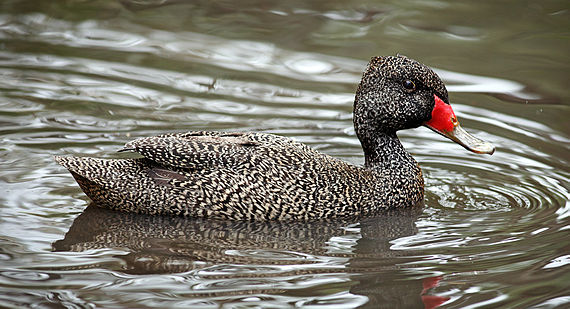
New administrators
The Signpost welcomes three editors as our newest admins.
- Gfoley4 (nom), from Illinois, spends his time on Wikipedia reverting vandalism, reviewing AFC submissions, and working on transit-related articles; a particular interest of his are Wikipedia's train-related articles, and those he has contributed on are listed on his userpage. He will primarily work at administrative noticeboards such as AIV and RFPP.
- Peridon (nom), from the UK, can be found mainly at CSD and AfD, Articles for Translation and SPI. Peridon also reverts vandalism and copy-edits articles. Although a native speaker of English, he has a presence at assorted European language WPs. He is a writer, book editor/producer, and musician (inter alia), and drinks real ale.
- JaGa (nom) is a chemical engineer turned software consultant, who grew up in rural southern Ohio and has spent the last decade in California, Ohio and the UK. He is a prolific disambiguator and creator of the Monthly Dab Challenge. JaGa intends to review speedy requests and will "get involved with vandal fighting again", among other admin activities.
At the time of publication there are three live RfAs: Valfontis, due to finish Friday 25 March, Feezo, due Saturday, and NickPenguin, due Sunday.
Featured articles
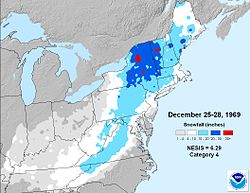

- December 1969 nor'easter (nom), notable but almost forgotten severe winter storm event in the northeast of the United States, with huge snowdrifts and heavy rains. There were 20 deaths. (Juliancolton)
- Hanged, drawn and quartered (nom), a grisly medieval punishment that persisted well into the 18th century in England. A person was dragged at the back of a horse from prison to scaffold, hanged briefly, laid out while still concious on a table, and the guts pulled out and burnt, followed by a beheading. The body was then chopped into four pieces and nailed to the walls. (Parrot of Doom)
- The Legend of Zelda: Link's Awakening (nom), a 1993 action-adventure video game produced by Nintendo. Nominator David Fuchs says, "What does a young Japanese elf stranded on an island with a giant egg have to do with surrealist David Lynch?"
- Marojejy National Park (nom), which covers 550 km2 in northeastern Madagascar, off the east coast of southern Africa. Poaching and selective logging are still persistent problems, particularly since the start of the 2009 political crisis in Madagascar. Mining, slash and burn agriculture, and wood collection also pose threats to the park and its wildlife. (Visionholder)
- USS Constellation vs L'Insurgente (nom), the first battle of the Quasi-War, the first naval battle in the history of the US Navy. This single-ship action in 1799 between French and American frigates resulted in the capture of L'Insurgente. (XavierGreen)
- Malmö FF (nom), the most successful Swedish professional football club in terms of trophies won, it is based in the country's third-most-populous city, on the southern tip close to Denmark. (Reckless182)
- Eduard Streltsov (nom), a brilliant Soviet footballer whose career was interrupted at the age of 20 by a conviction for rape that led to five years in prison. (Cliftonian)
- Me and Juliet (nom), a musical comedy and the sixth stage collaboration by Rodgers and Hammerstein. Nominator Wehwalt says it was "an utter flop, [but] it probably deserved better".
- Warren County, Indiana (nom), which lies in western Indiana between the Illinois border and the Wabash River in the United States. (Omnedon) NB This was promoted 9 February, but was inadvertently left out of "Features and admins" at the time.
Featured lists
Newly promoted and demoted featured lists will be covered in the next Signpost in a special report.
Featured topic

Featured pictures

- Freckled Duck female (nom; related article), the Freckled Duck, a moderately large, broad-bodied duck native to southern Australia. (Created by User:Benjamint444.)
- Freckled Duck male (nom; related article), a potential suitor to the previous specimen? (Created by User:Benjamint444.)
- Ivan Vazov National Theatre, Sofia (nom; related article), among the most popular architectural landmarks of the city, which is the capital of Bulgaria. (Created by User:MrPanyGoff.)
- Greenshank (nom; related article), showing the characteristic coarse, dark, and fairly crisp breast pattern as well as much black on the shoulders and back in breeding plumage. This subarctic bird breeds across northern Europe and Asia and winters in Africa, south Asia, and Australasia, usually on fresh water. This photograph was taken in Thailand. (Created by User:JJ Harrison.)
- Purple Swamphen (nom; related article), a chicken-sized bird with huge feet, bright plumage, and red bill and frontal shield, native to Thailand. (Created by User:JJ Harrison.)
- Blue Whistling-thrush (nom; related article), typically weighing in at 178 grams (6.3 oz) and 33 centimetres (13 in) long, is believed to be the world's largest species of thrush. It feeds mainly on insects. Its natural habitats are temperate forests and subtropical or tropical moist montane forests in southern Asia. (Created by User:JJ Harrison.)
- The front entrance of the Ordination Hall Wat Arun (nom; related article), a Buddhist temple (wat) in the Bangkok Yai district of Bangkok, Thailand. (Created by User:WPPilot.)
- Black-capped Kingfisher (nom; related article), widely distributed in tropical Asia from India east to China, Korea and Southeast Asia, and here photographed by User:JJ Harrison in Thailand.
Featured sounds
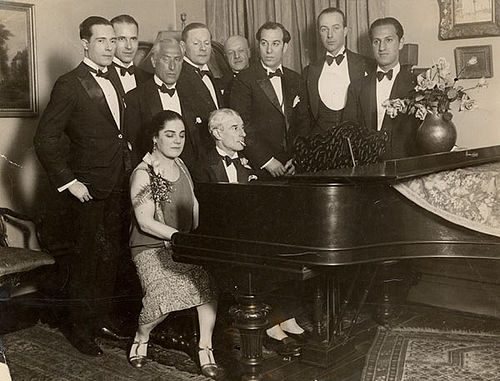
Fifteen sounds were featured:
|
| Ravel's Pavane pour une infante défunte |
|
| Debussy's Syrinx |
|
| Bugle call To the color |
|
| Bugle call Retreat |
|
| Debussy's Pour le piano |
|
| Wind ensemble arrangement of "Finale" from Tchaikovsky's Symphony No 4 |
|
| Kodály's Duo for violin and cello |
|
| Bartok's Sonatina for piano |
|
| Taffanel's Pastoral and Scherzettino |
|
| Respighi's Balletto detto Il conte Orlando |
|
| Faure's Fantasie |
|
| Scott's Frog Legs Rag 4 |
|
| Ravel's String Quartet, mvt 2 |
|
| Taps on bugle |
|
| Sousa's Stars and stripes forever |

Reader comments
One closed case, one suspended case, and two other cases
The Committee closed one case during the week. Three cases are currently open.
Open cases
Arbitration Enforcement sanction handling (AE sanction handling) (Week 2)
During the week, another 56 kilobytes was submitted as on-wiki evidence while several proposals were submitted in the workshop by parties and others.
Rodhullandemu (Week 3)
During the week, the Committee "voted for good cause to suspend further proceedings in the case until April 7, 2011 or as otherwise announced." Accordingly, all activity in the case (including evidence submissions, as well as workshop proposals and proposed decisions) has been suspended until further notice.
Monty Hall problem (Week 6)
During the week, further proposals and modifications were reconsidered in the workshop and added to the proposed decision for arbitrators to vote on.
Closed cases
Kehrli 2 (Week 6)
This case, following on from the 2006 case concerning Kehrli (talk · contribs), concerns allegations of disruptive editing to the Kendrick (unit) and Kendrick mass articles. Evidence was submitted on-wiki by four editors. Drafter David Fuchs submitted several proposed principles in the workshop before submitting a proposed decision for arbitrators to vote on. The case came to a close during the week after a total of 13 arbitrators voted on the proposed decision.
- What is the effect of the decision and what does it tell us?
- Kehrli is indefinitely topic banned from the metrology topic.
- Articles may not contain any original synthesis - a combination or analysis of published material that serves to advance a position not clearly stated by the sources. Editors should ensure that the reporting of different views on a subject adequately reflects the relative levels of support for those views, without giving undue weight to a particular view; Wikipedia is not a venue for advocating or advancing a viewpoint or position.
- Articles containing units of scientific measurement should generally use the units and notations that are used most often by contemporary reliable sources within the field. Exceptions may be made for valid reasons, such as in historical contexts, or in articles about the units of measurement.
Reader comments
What is: localisation?; the proposed "personal image filter" explained; and more in brief
What is: localisation?
This week's Technology Report sees the first in an occasional editorial series entitled What is?. The series aims to demystify areas of the Wikimedia and MediaWiki technology world for the casual editor. Today's article is on "localisation", a process where the MediaWiki interface is translated into other languages (over 300 of them).
For the past five years, localisation is something MediaWiki has done very well. For 188 different languages (or language variants), 490 or more out of the most used 500 interface messages (including sidebar items and "Revision as of", for example) have been translated from the default (English) into that language. That list includes big names (French, German, Spanish) but also a myriad of smaller language groups as diverse as Lazuri (spoken by approximately 32,000 people on the Black Sea) and Tachelhit, a Berber language spoken by 3 to 8 million Moroccans (full list).
Translation, in the vast, vast majority of cases, cannot be handled by MediaWiki developers alone. Instead, the effort is crowdsourced to a large community of translators at translatewiki.net, an external site with nearly 5,000 registered users (source). The site was built for translating all things MediaWiki, but now also handles a number of other open source projects. When new interface messages are added, they are quickly passed onto translatewiki.net, and the finished translations are then passed back. Every project which uses the LocalisationUpdate extension (including all Wikimedia projects) provides access to the latest translations of interface messages to users in hundreds of languages within a few days of translation.
Over 100 issues (source) remain with language support for right-to-left languages, languages with complex grammar, and languages in non-Roman scripts, but the situation is slowly improving. For more information about MediaWiki localisation, see MediaWiki.org.
"Personal image filter" to offer the ability to hide sexual or violent media
At the upcoming meeting of the Wikimedia Board of Trustees on March 25/26, a design draft for the "Personal image filter" will be presented, a system that will allow readers to hide controversial media, such as images of a sexual or violent nature, from their own view. This modification would be the first major change to come out of the long-lasting debates about sexual and other potentially offensive images. In May last year they culminated in controversial deletions by Jimbo Wales and other admins on Commons, at a time where media reports, especially by Fox News, were targeting Wikimedia for providing such content. Subsequently, the Foundation commissioned outside consultants Robert Harris and Dory Carr-Harris to conduct the "2010 Wikimedia Study of Controversial Content", which was presented at the Board's last physical meeting in October. The study's recommendations were not immediately adopted, with the Board forming a workgroup instead. (See the summary in the Signpost's year in review: "Controversial images".)



The study had recommended that "a user-selected regime be established within all WMF projects, available to registered and non-registered users alike, that would place all in-scope sexual and violent images ... into a collapsible or other form of shuttered gallery with the selection of a single clearly-marked command ('under 12 button' or 'NSFW' button)", but that "no image [should] be permanently denied to any user by this regime, merely its appearance delayed".
In response to an inquiry by the Board if such a feature was feasible and how it might look, the draft design for the Personal Image Filter was developed by the Foundation's tech staff, in particular designer Brandon Harris (User:Jorm (WMF), no relation) and has already been presented to the workgroup, which in turn will present it to the Board this week. The design introduces a global "Content Filter" category on Commons, containing all images that can potentially be hidden according to a user's preferences, with a set of subcategories corresponding to such preferences. As a kind of localization of these, "individual wikis will be required to maintain a 'Category Equivalence Mapping'", to which they can add (but not remove) their own subcategories. The total number of subcategories is intended to be small though, with "somewhere between 5-10" global subcategories, and together with local ones "the interface can comfortably support around 10-12 filters before becoming unwieldy". Like the original recommendations from the study, the proposal appears to leave it to the communities to define the set of filterable subcategories, but it sketches a possibility:
| “ | A wiki's "Content Filter" category could contain the following sub-categories: "Sexually Explicit", "Graphic Violence", "Medical", and "Other Controversial Content". [For example,] images illustrative of sexual techniques could be placed in the "Sexually Explicit" sub-category while images of Mohammed could be placed in "Other Controversial Content" (or even "Images of Mohammed"). | ” |
Users (both anonymous and registered) can select which categories they want to filter via an annotation next to filterable images that lists the filter categories the image belongs to, or from a general display setting (accessible via a registered user's preferences, or for anonymous users via a new link next to "Log in/Create account").
Both the recommendations of the Controversial Content study and the workgroup's chair Phoebe Ayers emphasise the opt-in (i.e. voluntary) nature of the filtering. From a technical perspective, the changes needed to arrive at an opt-out (i.e. mandatory at first) version are obviously rather trivial, and indeed until very recently, the proposal encompassed an additional option for "Default Content Filtering", that could be activated on a per-wiki basis if consensus on that project demanded it. The option was removed by Jorm who explained that it had originally been included "because I could see this being used by non-WMF sites", but decided to remove it because it was "more of a suggestion for implementation, rather than a requirement, and appears controversial".
In fact, at least on the English Wikipedia, the standard skins have for a long time provided CSS and JavaScript code to allow parts of a page to be hidden for all readers. However, the use of the corresponding templates has generally been restricted to talk pages ({{collapse}}), tables and navigational components ({{hidden}}), with objections to their use for more encyclopedic content. Still, their use for controversial images has been advocated by some, including Jimmy Wales who argued in favour of using the "Hidden" template for Muhammad caricatures: "Wiki is not paper, we should make use of such interactive devices far more often throughout the entire encyclopedia, for a variety of different reasons." Wales, who has been a member of the Board's Controversial Content workgroup since a reshuffle in winter (the others being Ayers, Matt Halprin and Bishakha Datta), recently responded to two related proposals on his talk page ([1], [2]), supporting "reasonable default settings" for the display of controversial images, based on "NPOV tagging" such as "Image of Muhammad", rather than subjective assessments such as "Other controversial content".
The Controversial Content study's recommendations had suggested that the feature should be "using the current Commons category system", in the form of an option that users can select to partially or fully hide "all images in Commons Categories defined as sexual ... or violent". For registered users, it recommended even more fine-grained options, to restrict viewing "on a category by category or image by image basis" even outside the sexual or violent categories, similar to Wales' "NPOV tagging". But this was rejected as impractical for the Personal image filter proposal. Brandon Harris explained why:
| “ | 1) Cache invalidation. The way the system is proposed to work, we basically have to send the categories along with the HTML of the article, so that JavaScript [i.e. the code that actually does the hiding] can act on it. We have to invalidate that HTML whenever controversial content categories are applied or removed, which is hard enough with a set of 10-15 categories and some tens or hundreds of thousands of images [let alone] all 10M+ images and every single category operation that's performed on those images.
2) Subcategories. A system that allows you to choose arbitrary categories isn't particularly helpful if it doesn't also traverse subcategories (imagine choosing Nudity in art, and then not getting the actual categories that contain the relevant images). Traversal of subcategory structures completely breaks the approach we're proposing, and is generally very hard to do as you can tell from the absence of any meaningful traversal features in MediaWiki. 3) Localisation. All the complexity that we've talked about for 10-15 categories, but a few order of magnitudes more of it. |
” |
In brief
Not all fixes may have gone live to WMF sites at the time of writing; some may not be scheduled to go live for many weeks. Users interested in the "tarball" release of MW1.17 should follow bug #26676.
- Niklas Laxström (User:Nikerabbit), a MediaWiki developer and the founder of translatewiki.net (see editorial above) blogged to thank developers for fixing important bugs with the site.
- The WMF's Jessie Wild posted an update on the "offline" Wikipedia project, summarising developments of the past fortnight (Wikimedia blog).
- A new extension, called "PoolCounter" and designed to help with spikes in traffic - the "Michael Jackson problem", was enabled for all Wikimedia wikis (server admin log).
- Special:NewPages now supports RevisionDeletion (bug #27899).
- Mark Hershberger, the WMF's current bugmeister, announced his intention to supply regular lists of the highest priority bugs for developers to focus their attention on (wikitech-l mailing list, update).
- The full history on the English Wikipedia as of January 2011 is now available to download in 15 chunks (full, uncompressed size is around 4 terabytes). A version correct as of March is expected to take "a while" to complete (wikitech-l mailing list).
- Guillaume Paumier blogged about a new user gallery feature that has recently been deployed to WMF wikis.
- Following the resolution of bug #28020, page moves will no longer lock-in category sort codes.
- The limit on the number of contributions a user can have and can still be renamed has been increased to 50,000 (server admin log).
Reader comments


